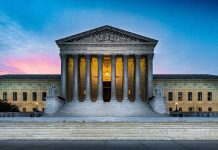
U.S. Representatives Thomas Massie and James McGovern have called on President Biden to pardon Julian Assange, igniting a debate on press freedom and journalistic integrity.
At a Glance
- Reps. Massie and McGovern urge President Biden to pardon Julian Assange.
- The plea deal led to Assange pleading guilty to Espionage Act breaches, risking press freedom.
- Assange’s case marks the first use of the Espionage Act against a publisher.
- A pardon would reaffirm the U.S. commitment to press freedom.
Advocacy for Assange’s Pardon
U.S. Representatives Thomas Massie, R-Ky., and James McGovern, D-Mass., have requested a presidential pardon for Julian Assange, founder of WikiLeaks. They argue that his prosecution under the Espionage Act could endanger press freedom, particularly affecting journalists who report on national security topics. Assange’s extradition request and lengthy detention, which ended with a plea deal earlier this year, underscore concerns about the legal precedent his case sets for future journalists.
Assange faced federal charges related to publishing classified documents revealing U.S. war crimes, potentially resulting in 175 years in prison. His plea deal earlier this year necessitated an admission of guilt to certain Espionage Act violations. Supporters argue that this development represents a worrisome precedent for journalism as he became the first publisher charged under this act.
BREAKING: U.S. Lawmakers @RepMcGovern and @RepThomasMassie call on President Biden to pardon Julian Assange. #PardonAssange pic.twitter.com/qVvHZPuKhA
— WikiLeaks (@wikileaks) November 28, 2024
Legal and Political Implications
Massie and McGovern emphasized the need for a Presidential pardon to prevent the use of the Espionage Act against journalists in their customary activities. They noted that this situation informed the Obama administration’s decision not to prosecute Assange previously, which served to protect press freedom. This backdrop raises significant concerns about the federal government’s commitment to shielding journalists’ rights.
“Put simply, there is a long-standing and well-grounded concern that section 793 [of the Espionage Act], which criminalizes the obtaining, retaining, or disclosing of sensitive information, could be used against journalists and news organizations engaged in their normal activities, particularly those who cover national security topics,” wrote McGovern and Massie.
Assange’s release from London’s Belmarsh Prison occurred this year after over five years of detention linked to the extradition request. Advocacy for his pardon continues, with political figures like his brother Gabriel Shipton planning to visit Washington to boost support before Biden’s term concludes. This advocacy is paired with international pressures, as Australian Prime Minister Anthony Albanese is encouraged to engage Biden on this matter.
International Reactions and Press Freedom
The potential impact on press freedom resulting from Assange’s case garners international concern. Jodie Ginsberg, CEO of the Committee to Protect Journalists, emphasized the broader anxiety regarding the prosecutorial precedent established after Assange’s plea agreement.
“While we welcome the end of his detention, the US’s pursuit of Assange has set a harmful legal precedent by opening the way for journalists to be tried under the Espionage Act if they receive classified material from whistleblowers,” said Ginsberg.
The debate on Assange’s pardon accentuates broader implications, affecting how justice, journalism, and government transparency balance in democratic frameworks. With voices from several political spheres urging action, the outcome remains pivotal in shaping the future landscape for journalists’ rights globally.









